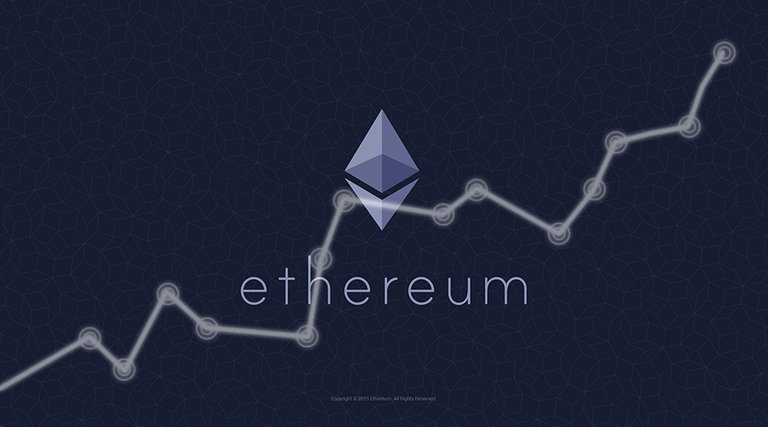
So you heard about this "Ethereum" thing and people said it was the "Greater Bitcoin". Okay, Cool! So you bomb over to Google and start hammering away at figuring out what application you can use to get a wallet. Perhaps even check out some currency exchange sites and open an account or two. Then you discover that with some extra cash and some handiness with computers you make your own "Ethers". Wow! What a deal! Then you decide you want to "duh-versify wit-cha-muh-nee" so you start looking at other Ethereum Software. So you download Mist, then you download "Ethereum", then you find out that it wont install because you have to have gETH. Then you do some research and find how that you also need ethereum c++ for certain apps. SO you install it all and walk through the endless help pages telling you to run this command that way and put this password in then that password in and, OH!, Don't forget to write down your password! So you dutifully comply and your miner is pumping your wallet up with ETHers.
Then one day you realize, OMG! My ETH's are worth ZOMG U$D!!! So you start up your favorite digital currency trading site and grab an ETH deposit address to send yourself some eth so you can get into this new fangled trading thing.
But your app asks you for a password to send your eth's, and you get this message: "Invalid Password".
Well that's okay, I probably just typed it in wrong. So you type it out into a notepad file and triple check it, then copy the password and past it into your program and submit the transaction, then again you get: "Invalid Password"
This is where you start Slamming you "WTF!" key on you keyboard. Sheepish posts to help and support forums ensue at first. A few people think that its just an "Input" problem so they try this and recommend that. But to no avail. Your ETH's are now hostages in your own computer! Then the begging ensues and shortly there after rage and insanity start to build as you start blaming everything and the kitchen sink for your woeful digital money debacle.
No one seems to know why this problem exists, and to sweeten the deal, most just stop caring.
Finally you make your last ditch plea for help and begin your scared straight walk down the fine line of a road called, "My Central Bank" because at least you could get your money by taking them to court.
The woeful Digital Currency Enthusiast has now sworn off the hard stuff for good.
I thought I would shed some light on why this issue happens. We want options. Because none of us like to have all our eggs in one basket. However, in the software realm of Ethereum, this is bad juju.
As you have already discovered, ethereum applications do not check to see if another ethereum application is installed and will use the same data store in your user profile regardless of what data may already be in there.
This is what I call obfuscated local awareness. And it is a problem in many software applications of this nature. Bitcoin never really had this problem because everyone who forked off the main branch renamed the data store folders for their specific coin. Ethereum wallet apps currently do not do this.
Now if you are one of those who backup everything every night and after every software upgrade and installation, you are laughing and shaking your head because this probably happened to you, or someone you know.
So how do we solve this problem? Short of becoming a software engineer and creating your own application from a master branch, there are some things that you can do so that you can have your ETH/ETC and spend it too.
Enter Virtualization!
In the software development world, virtualization is the holy grail of broken code/overwritten file disaster recovery.
Windows even supports these with a little help, and lets not forget our Mac-OS and Linux brethren who would be laughing at you right now if it had not been for that nagging memory in the back of their mind that scratches their brain every time they consider the fact that this has happened to them at least once before.
These are the times when Linux becomes our friend and Windows becomes the bane of our existence because of software licensing restrictions. None of us want to pay for something if we absolutely do not have to. So we try the Linux path first. Lots of tutorials on how to get a virtual machine environment loaded in Windows exist and for the most part they work great. So after walking through about 34 installations of your favorite Ubuntu build you get frustrated with the time expended and the lack of results and now wish you had spent the $199.00 on Windows 10 Pro and just installed that into your virtual machine. In the end you would have wished you had, unless you are the Uber-god-of-Linux and have friends that can write custom Kernel's in their sleep as roommates. In which case this article is just boring you. I digress.
With a Virtualization program such as VMWare, Hyper-V, Virtual-box, Parallels or some other platform you can have your cake and eat it too with the function of Snapshots and restore points. These simple functions can save your money and your time with a bit of planning and discipline as the key ingredients to your recipe for success.
Now I know why my head was spinning when I startted looking into "this Ethereum thing". Cypto has a long way to go before it will be adopted by the masses, but we are on the way... articles like this will help in raising awareness that this needs to be simplifiied.